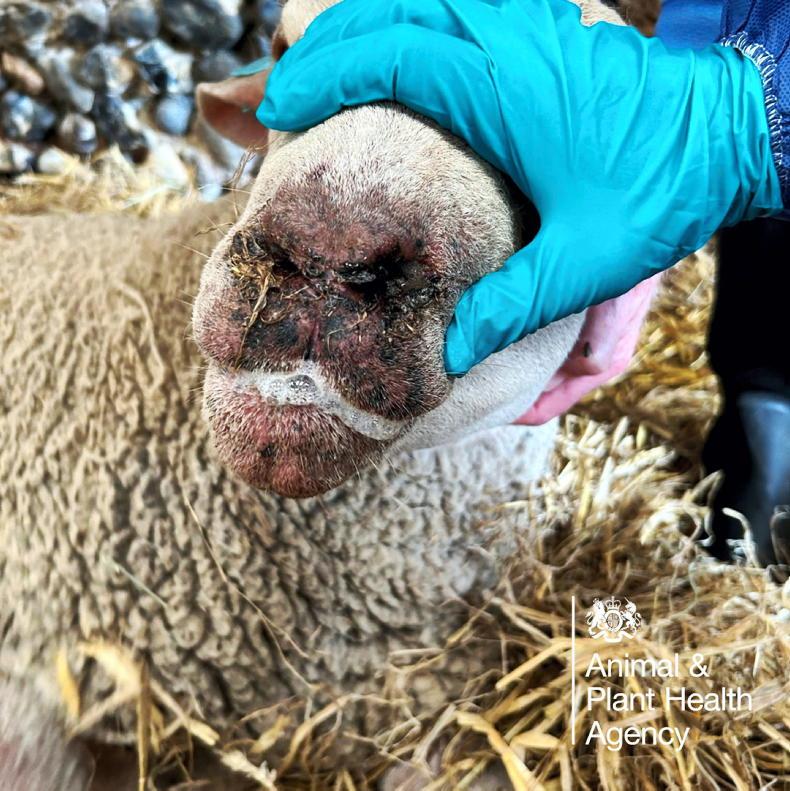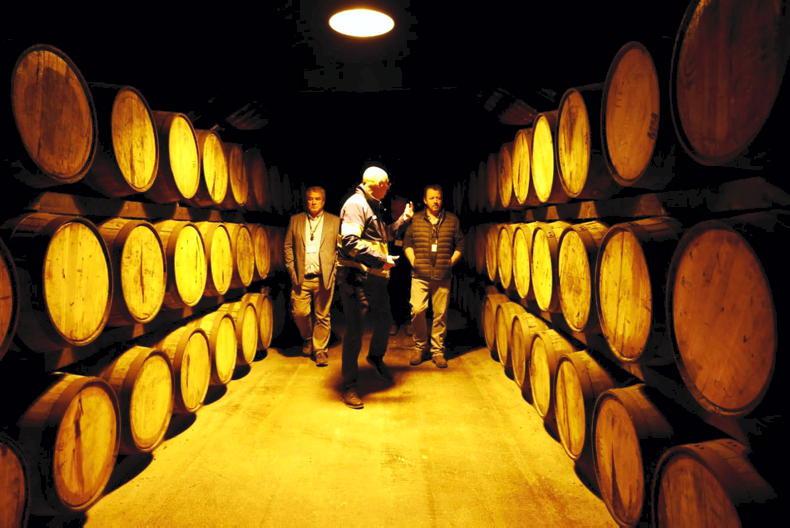The Ulster Farmers’ Union (UFU) and Irish Farmers’ Association (IFA) have called for a pause on all livestock imports to protect the island of Ireland from bluetongue (BTV).
It follows on from a meeting of the two farming organisations and the rapid rise in BTV-3 infection rates throughout Britain and Europe.
Forty-six cases of the viral disease have been confirmed in England since the end of August and there have been 700 cases in northern France alone.
UFU president William Irvine is urging farmers to not import livestock until a solution to the problem is found.
“Both the north and south of Ireland have managed to remain free from bluetongue to date, but the threat it now poses for our beef and sheep farms is huge.
“If a BTV-3 outbreak is detected in Northern Ireland or the Republic of Ireland, the impact on trade, both within the country and the import-export market, will have significant consequences for farmers and their livelihoods.”
Symptoms
The disease is mostly spread by windborne midges, but infected animals, infected foetuses and germinal products can spread infection.
Signs are high fever, lameness and inflamed mucous membranes of the mouth and nose. This includes sores and ulceration, swollen neck and head, profuse salivation and nasal discharge.
Animals may also appear stiff and be reluctant to move due to swelling around the hooves.
IFA president Francie Gorman said farmers must act responsibly to protect all livestock on the island.
“The introduction of BTV-3 on to the island of Ireland would cause serious disruption to live trade for cattle and sheep and would immediately stop the live sale and export of animals from within the restriction zone that would be established.”
Precautions
If any farmer suspects BTV-3 in their stock, they are being urged to contact their relevant Department of Agriculture immediately.
In addition, animals thought to be infected should be isolated and kept indoors to reduce the risk of further transmission.
“We do not want our farm families to experience the devastation of BTV-3 or for it to take hold in our livestock industry and we urge every farmer to help us protect our agri industry,” added Gorman.
“We all need to be aware of how dangerous BTV-3 is to our cattle and sheep, especially when a vaccine has not yet been approved here. Our animals are totally vulnerable to this disease.”









SHARING OPTIONS